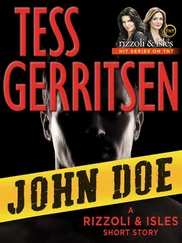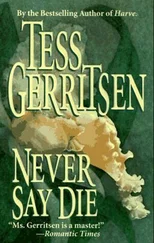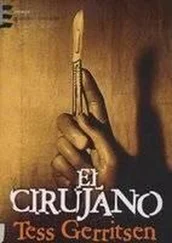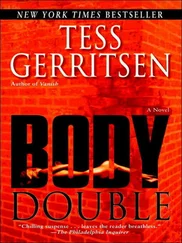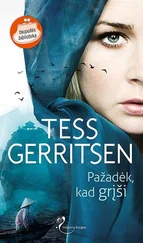“Which is why we can’t look weak. Not now.” The gruff words came from a shadowy corner of the room. It was Roman the forester, the only one who was not indulging in a comforting glass of brandy. “We have to go about our business as we always do.”
“That would be unnatural,” said Karla. “We all need time to process this.”
“ Process? Just a fancy word for moping and wailing. The lady killed herself, there’s nothing to be done but just move on.” With a grunt he rose and walked out of the room, trailing the scent of pine and tobacco.
“There’s the milk of human kindness for you,” Karla said under her breath. “With Roman setting the example, no wonder we’ve got students killing chickens.”
Gottfried said, “But Mr. Roman does bring up a valid point, about the importance of maintaining routine. The students need that. They need time to mourn, of course, but they also need to know that life goes on.” He looked at Lily. “We are going ahead with the field trip to Quebec?”
“I haven’t canceled anything,” she said. “The hotel rooms are booked, and the children have been talking about it for weeks.”
“Then you should take them as promised.”
“They’re not all going, are they?” said Maura. “Given Teddy’s situation, I think it’s too dangerous for him to be out in public and exposed.”
“Detective Rizzoli made that perfectly clear,” said Lily. “He’ll stay here, where we know he’s safe. Will and Claire will stay behind as well. And of course, Julian.” Lily smiled. “He told me he wants more time alone with you. Which is quite the compliment, Dr. Isles, coming from a teenager.”
“This still feels wrong, somehow,” said Karla. “To take them on a fun field trip when Anna’s just died. We should stay here, to honor her. To figure out what drove her to this.”
“Grief,” said Lily quietly. “Sometimes it catches up with you. Even years later.”
Pasquantonio harrumphed. “That happened, what? Twenty-two years ago?”
“You’re talking about the murder of Anna’s husband?” asked Maura.
Pasquantonio nodded and reached for the brandy bottle to refill his glass. “She told me all about it. How Frank was snatched from his car. How his company paid the ransom, but Frank was executed anyway, and his body was dumped days later. No arrest was ever made.”
“That must have enraged her,” said Maura. “And anger turned inward results in depression. If she carried that rage all these years …”
“We all do,” said Pasquantonio. “It’s why we’re here. Why we choose this work. Rage is the fuel that keeps us going.”
“Fuel can also be dangerous. It explodes.” Maura looked around the room, at people who had all been scarred by violence. “Are you certain you can handle it? Can your students? I saw what was hanging from that willow tree. Someone here has already proven he—or she—is capable of killing.”
There was an uncomfortable moment of silence as the teachers looked at one another.
Gottfried said, “It is something that concerns us. Something that Anna and I discussed yesterday. That one of our students may be deeply disturbed, perhaps even—”
“A psychopath,” said Lily.
“And you have no idea which one?” said Maura.
Gottfried shook his head. “That was what bothered Anna the most. That she had no idea which student it might be.”
A PSYCHOPATH. DEEPLY DISTURBED.
That conversation left Maura uneasy as she climbed the stairs later that night. She thought about damaged children and how violence can twist souls. She thought about what sort of child would kill a rooster for amusement, slice it open, and display it with entrails hanging in a tree. She wondered in which room, in this castle, that child now slept.
Instead of returning to her room, she kept climbing the stairs to the turret. To Anna’s office. She had visited the room earlier that evening, with the state police detectives, so when she stepped into the office and flipped on the lights she expected no surprises, no new revelations. Indeed, the room appeared as they’d left it. The quartz crystals, dangling in the window. The stubs of incense sticks, burned down to gray ash. On the desk was a stack of charts, the top one still open to a police report from St. Thomas. It was Teddy Clock’s file. Nearby was the vase of roses that Anna had cut that morning. Maura tried to imagine what might have gone through Anna’s head as she snipped the stems and inhaled the perfume. This is the last day I will smell flowers ? Or had there been no thoughts of time running out, no farewells to life, just an ordinary morning in the garden?
What made this day turn out so tragically different?
She circled the room, seeking any lingering trace of Anna. She did not believe in ghosts, and those who refuse to believe will never encounter one. But she paused in the room anyway, inhaling the scent of roses and incense, breathing the same air that Anna had only recently breathed. The roof walk door through which Anna had stepped out was now closed against the night chill. The tray with the teapot and china cups and covered sugar bowl was on the side table, where it had been the morning that Jane and Maura had sat in this office.
The teacups were clean and stacked, the pot empty. Anna had taken the time to rinse and dry the teapot and cups before she’d ended her life. Perhaps it was a final act of consideration to those who’d have to tidy up in the aftermath.
Then why had she chosen such a messy way to die? An exit that had splattered blood on the path and forever stained the memories of students and colleagues?
“It doesn’t make sense. Does it?”
She turned to see Julian standing in the doorway. As usual, the dog was at his feet, and like his master Bear looked subdued. Weighed down by sorrow.
“I thought you’d gone to bed,” she said.
“I can’t sleep. I went to talk to you, but you weren’t in your room.”
She sighed. “I can’t sleep, either.”
The boy hesitated in the doorway, as though to step into Anna’s office would be disrespectful to the dead. “She never forgot a birthday,” he said. “A kid would come down to breakfast and find some funny little gift waiting. A Yankees cap for a boy who liked baseball. A little crystal swan for a girl who got braces. She gave me a present even when it wasn’t my birthday. A compass. So I’d always know where I was going, and would always remember where I’ve been.” His voice thinned to a whisper. “It’s what always happens to people I care about.”
“What does?”
“They leave me.” They die was what he meant, and it was true. The last of his family had perished last winter, leaving him alone in the world.
Except for me. He still has me .
She pulled him into her arms and held him. Julian was as close to a son as she’d ever have, yet in so many ways they were still strangers to each other. He stood stiffly in her arms, a wooden statue embraced by a woman who was equally uneasy with affection. In this way they were sadly alike, hungry for connection, yet untrusting of it. At last she felt the tension go out of him, and he returned the hug, melting against her.
“I won’t leave you, Rat,” she said. “You can always count on me.”
“People say that. But things happen.”
“Nothing will happen to me.”
“You know you can’t promise that.” He pulled away and turned toward Dr. Welliver’s desk. “She said we could count on her . And look what happened.” He touched the roses in the vase; one pink petal dropped off, fluttering down like a dying butterfly. “Why did she do it?”
“Sometimes there are no answers. I struggle with that question far too often in my own job. Families trying to understand why someone they love committed suicide.”
Читать дальше

